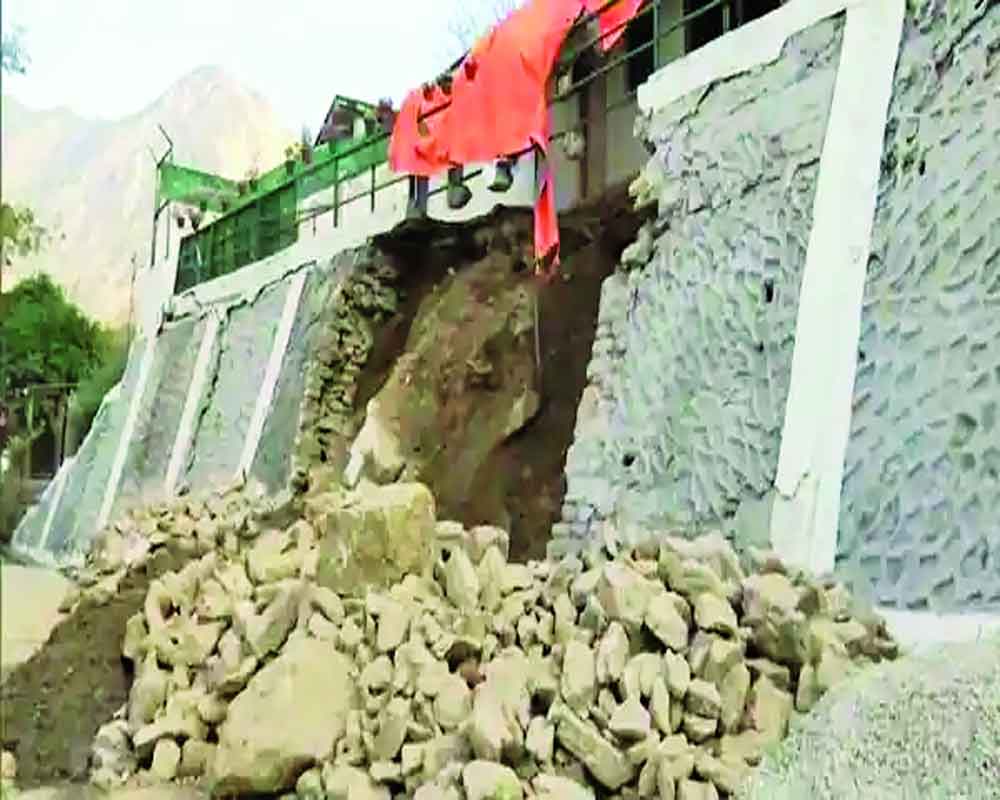Politicians & people ignored geological facts of Joshimath, and now it is fire-fighting mode
In a way, the crisis of ‘sinking town’ of Joshimath in Uttarakhand is quintessentially Indian: a grey rhino event about which a great deal was known for years, decades actually, but nobody did anything about it. And now that the problem has acquired catastrophic proportions, everyone is talking about it. It is good that at all levels efforts are being made to salvage the situation. Prime Minister Narendra Modi has promised all possible help to save Joshimath, Uttarakhand Chief Minister Pushkar Singh Dhami said on Sunday. The latter had a tele-conversation with the Prime Minister. Dhami tweeted, “The situation in Joshimath is being analysed. We’ll also see if other mountainous towns have achieved their toleration limit.” At the Central level, the Prime Minister’s Office is actively monitoring the ground situation. Officials of the National Disaster Management Authority (NDMA) and the State Government are part of deliberations. All this is comforting, but the discomforting questions are: Why do we have to wait for the situation to become alarming to take action? Why are the powers that be reactive rather than proactive? It was almost half a century ago that the Mishra Committee Report had warned (in 1976) against such an eventuality. One of the recommendations of the report was: “For road repairs and other construction, it would be advisable not to remove boulders by digging or blasting the hill side... The trees are to be nurtured like children.”
In fact, it was not just the authorities and politicians who ignored the committee’s report but even the local people living there. Some of them even reportedly abused committee members, but now they are repenting their own carelessness. Headed by MC Mishra, the then Garhwal commissioner in the erstwhile State of Uttar Pradesh (Uttarakhand was part of UP at that time), it comprised 18 members, including from the Army, the Indo-Tibetan Border Police, the Border Road Organisation, the Shri Kedarnath-Badrinath Temple Committee, and the local administration. It said, “Joshimath lies on an ancient landslide.” The root cause of the problem and the report’s recommendations were ignored, but the facts of geology and geography are stubborn; we may ignore them but they have ways of making their presence felt; and that’s happening now. Cracks are appearing in houses, roads and on the ground; the administration has declared Joshimath a landslide-subsidence zone; more than 60 families living in damaged houses have been evacuated to temporary relief centres; 90 more families may have to be moved out. The Chamoli District Magistrate reportedly went door-to-door, assessing the damage caused and urging people to evacuate. In short, the authorities are in fire-fighting mode. Again, this is very typical of India: politicians and officials ignore problems till these hit us hard, and then start acting like fire-fighters. A nation that wants to emerge as an economic power and a political force on the world stage ought to have a more responsive and imaginative administration.


























